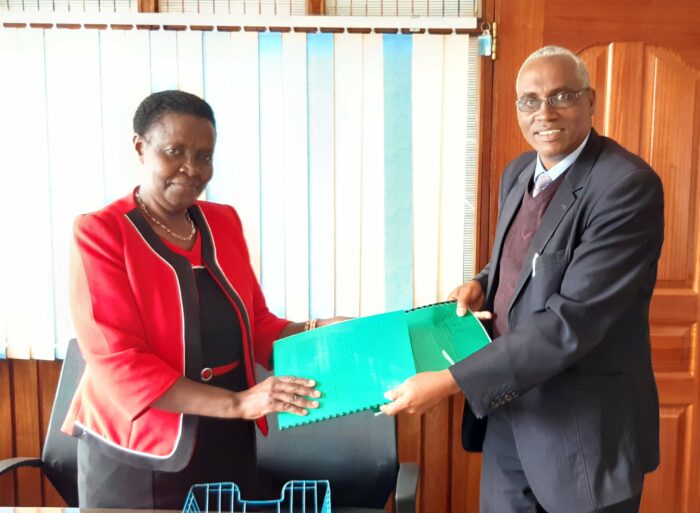
In Swahili, “casa dada” means “empower a woman.” It’s also the name of a new, innovative program being offered by Capital SACCO (credit union) in Meru County, Kenya to promote financial inclusion. Specifically, CASA DADA is a financial literacy training and savings and loan program for women. To encourage more women to save at the SACCO and improve their financial literacy and ability to access credit, Capital SACCO launched the CASA DADA program in May 2021.
NCBA CLUSA works with Capital SACCO through its Creating an Environment for Cooperative Expansion (CECE) project, which is part of the US Agency for International Development (USAID)-funded Cooperative Development Program (CDP). Originally, Capital SACCO was included in CECE’s cooperative coaching program, but the relationship soon expanded. Through the Social Systems Network Analysis conducted by CDP partners Global Communities, World Council of Credit Unions and NCBA CLUSA with support from Root Change in 2019-2020, Capital SACCO was recognized as a “resource hub” in Meru County by fellow cooperative stakeholders. In addition to coaching activities focusing on governance and other cooperative management topics, NCBA CLUSA realized Capital SACCO could grow into a more effective and inclusive resource hub for the cooperative community in Meru County.
First, NCBA CLUSA encouraged Capital SACCO to take a more strategic, aspirational, and long-term view of its mission, vision, and operations. After lots of discussion and gender sensitization meeting, which were held in partnership with county government officials, Capital SACCO developed new manuals related to investments, savings, and dividends management with financial inclusion goals in mind. They also created a forum for the SACCO’s management team to meet with women to discuss issues affecting them financially. With input from several women cooperative leaders and members involved in the Meru County women’s cooperative membership campaign—which is also supported by the CECE project—the CASA DADA program was created.
CASA DADA brings women together into groups of 15 to encourage each other to save. These groups register officially with the County’s Department of Social Services to be able to open a bank account. Then they participate in financial literacy training and save with the SACCO through their group’s bank account for three months. Upon completion of the training, the women’s groups are eligible for loans from Capital SACCO. To date, 10 groups have received loans from Capital SACCO totaling 450,000 KES, or approximately $397.50 USD per group. The women’s groups disburse the loans to the members and serve as a guarantor on the loans. In total, 150 women have accessed credit through these group-based loans.
“The CASA DADA product has positively impacted women in the sense that the table banking schemes owned and ran by women have created a good platform for women without collateral to access affordable loans,” explained Nancy Makena, product manager.
In addition to the CASA DADA program, NCBA CLUSA has also started partnering with Capital SACCO to support accounting and financial management training with several dairy cooperatives in Meru that participate in the CECE coaching program. Since May 2021, trained Capital SACCO staff have met with these cooperatives at least once per month to address accounting and finance challenges. Although the CECE project will end in 2023, the relationships being built between Capital SACCO and other cooperatives can continue, strengthening the cooperative sector network in Meru County.
As explained by one of the dairy cooperative managers, “Capital Sacco has strongly helped us with funds to purchase vehicles, equipment like computers, paying of farmers every month and training of the board members on financial literacy. They also support most of our groups in the grassroots with funds to boost their small businesses like table banking as well as training them on economic empowerment. Capital SACCO is our SACCO and therefore we are proud to be associated with it.”
Capital SACCO is also proud to help strengthen fellow cooperatives, and although the SACCO is eager to make their financial products and services more accessible to women to promote their economic empowerment, they also recognize that they are benefiting from this work. According to the Deputy CEO, “the CDP program is good for business strategic planning but better still, we have been able to come up with a new product for women. This product has increased women membership and shares to the SACCO.”
In 2022, NCBA CLUSA and Capital SACCO will continue to partner on CECE coaching activities and promote financial inclusion and women’s economic empowerment through the CASA DADA program. NCBA CLUSA will help Capital SACCO assess the strengths and challenges with the program to ensure it continues to grow and become more impactful.


